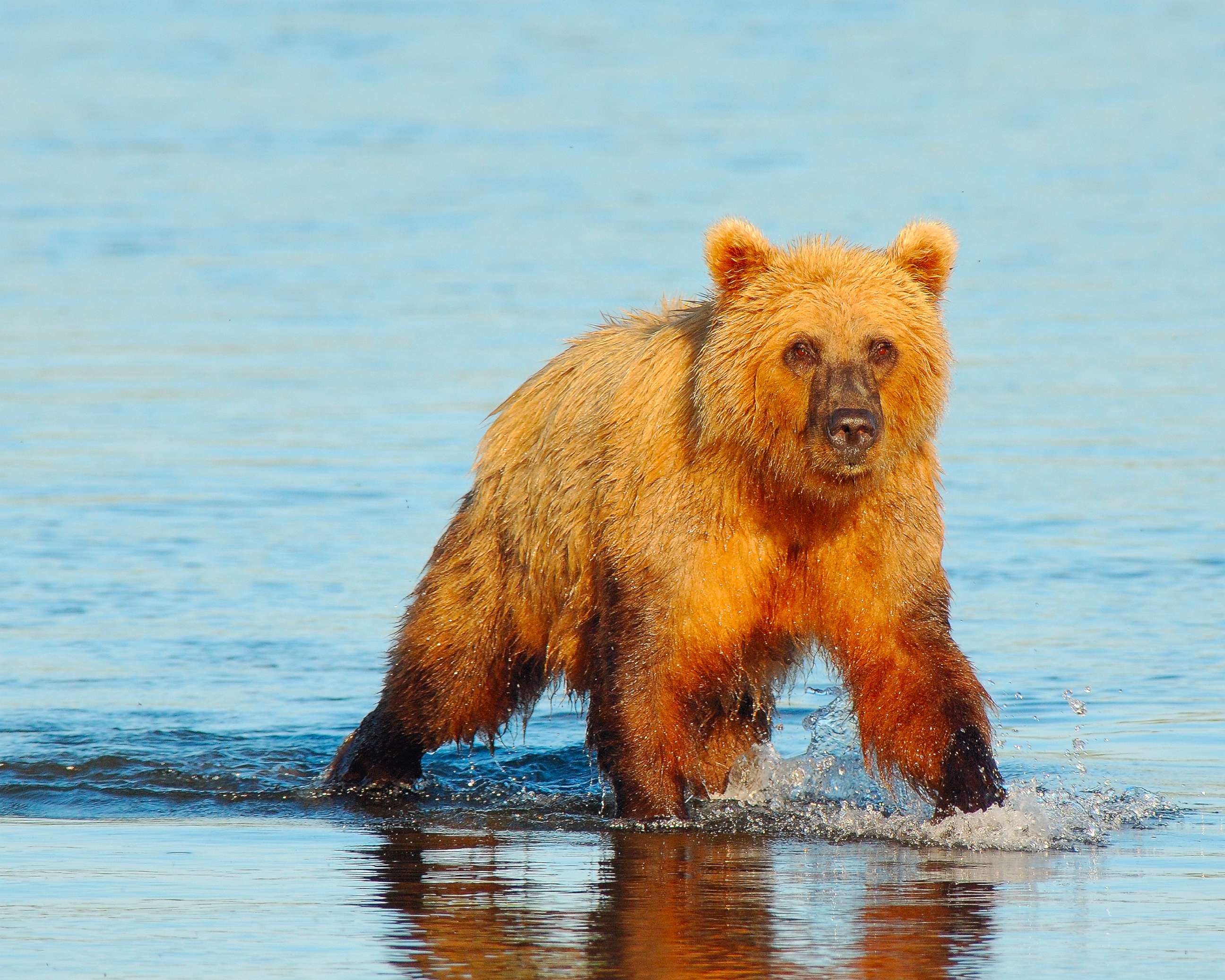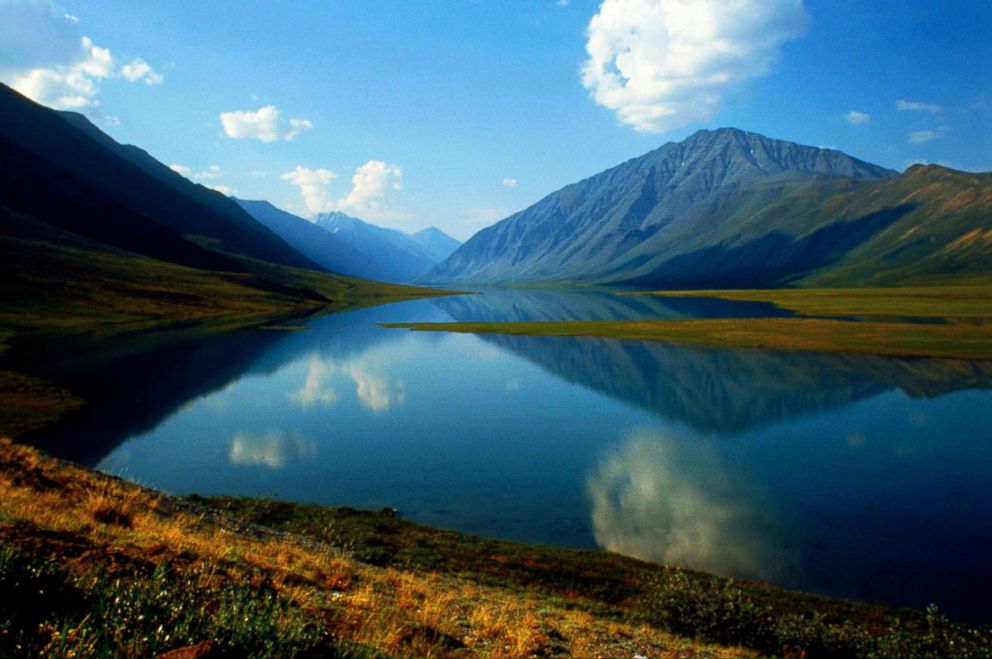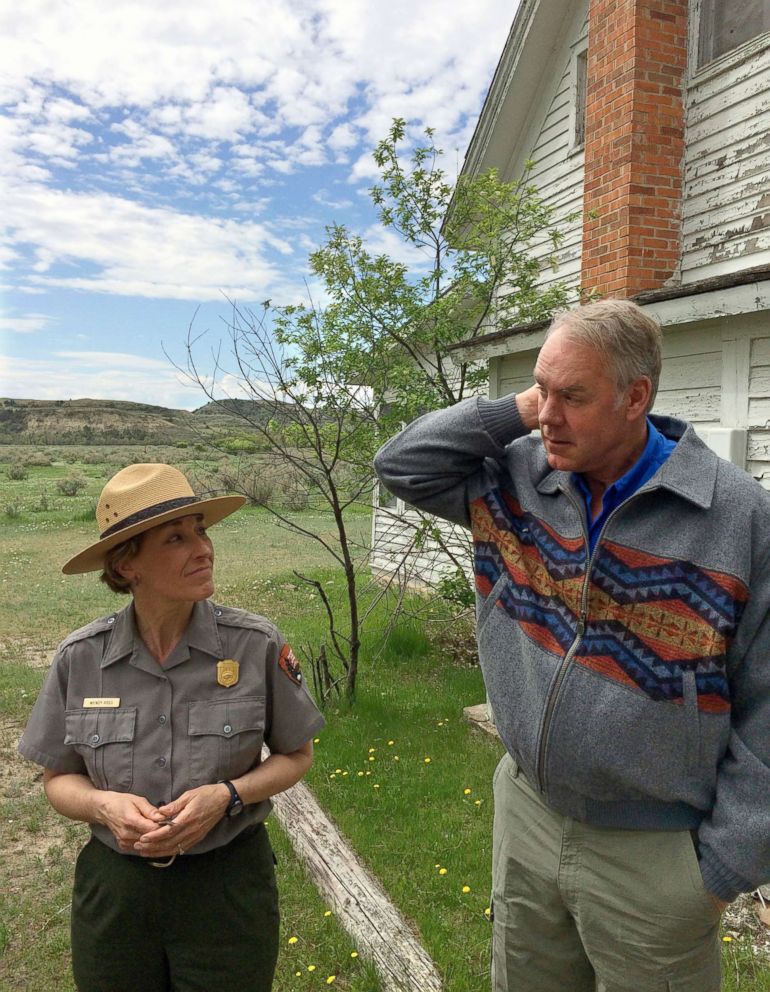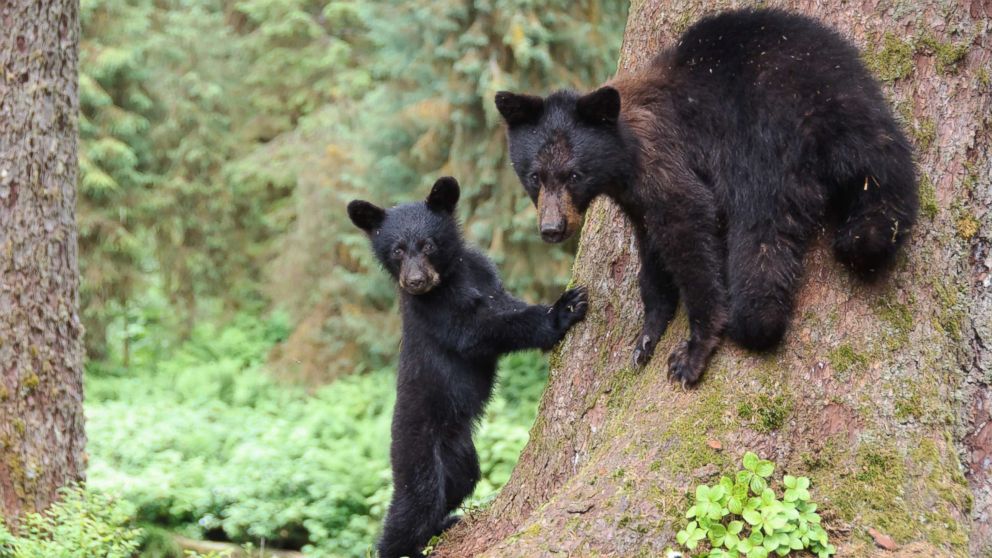Trump admin. push to expand access to public lands leads to shift in National Park Service approach
Hunters in Alaska could be allowed to kill black bear cubs and wolf or coyote pups in their dens, set bait for brown bears, and kill caribou while they are swimming on national wildlife preserves in the state.
The proposal represents a National Park Service push to defer to states in situations where there is conflict between state and federal regulations.
The issue ultimately comes down to a difference between state and federal policies. The National Park Service proposed a rule last week that would reverse a ban on the hunting practices that Alaska wanted to allow on the state level, even though national wildlife groups have called the effort "inhumane."
The dispute between the Park Service and Alaska comes from conflicting approaches to how to manage predators in the state.
The Park Service emphasizes keeping wildlife populations natural with little human interference, while the state of Alaska manages wildlife resources for sustainable harvest, Peter Chastain, a spokesman for the National Park Service in Alaska told ABC News.

He said that Sec. Ryan Zinke and the new administration have said that agencies should emphasize expanding access to hunting, fishing, and other outdoor activities on public lands and defer to the states if there is a conflict.
"The Park Service has a new boss and we have a new secretary and these are secretarial orders that came down that direct the park service to work more collaboratively with the state of Alaska," said Peter Chastain, spokesman for the National Park Service in Alaska.
Hunting for sport is allowed on national wildlife refuges in Alaska but not in National Parks and Chastain said these policies don't represent an average hunter. He said the Service will still work to manage the natural populations as much as possible if the rule is finalized.
The director of the state's Division of Wildlife Conservation Bruce Dale said the state originally legalized these practices because they were used by Native American tribes in some areas.
He said practices like hunting caribou in the river or killing bears in their dens are used by Native American tribes in Alaska for food and clothing. He said the 2015 rule actually had a minimal impact but that local hunting practices and traditions just couldn't be controlled by agencies in Washington.
"The actual rule changes affected very few people and certainly didn't have population effects on wildlife, what we were opposed to as the state of Alaska is the basis of the federal laws made the authority of the federal government to manage wildlife resources," Dale said.

Alaska's state agency that regulates hunting said in a statement that the state does not control predator populations in national preserves through hunting and that the proposed rule acknowledges that the state has the primary authority to manage its wildlife.
"State of Alaska and Park Service policies were consistent for decades; no conservation concern or scientific basis existed to justify the 2015 changes," Alaska Fish and Wildlife Commissioner Sam Cotten said in a statement.
The Park Service cites orders signed by Zinke signed an order to expand recreational opportunities on public lands, including hunting and fishing, as a reason the federal government should overturn the ban.
Zinke has said that hunting provides valuable economic benefits and helps with conservation of certain species and has launched initiatives and signed orders to look into how the department can expand opportunities for hunters, complete with an employee competition with the game "Big Buck Hunter."
Chastain said that even though the proposed rule is a change in Park Service policy federal and local agencies all have the same goal.
"We would all do better if we could work and collaborate with each other for the management of those resources. I think what gets lost in there is we all have the same goal which is to manage healthy populations it's just the matter of how we get there that is making the headlines," he said.
But animal advocacy groups like the Humane Society and Center for Biological Diversity say that practices like bear baiting are not ethical.
"This is just completely unethical and the average hunter should be appalled by these types of practices that will be allowed," Nicole Paquette, vice president of wildlife protection for the Humane Society said.
Collette Adkins, senior attorney for the Center for Biological Diversity, said that her group will likely sue to block the rule if it is finalized.
"There are several states that still allow bear baiting or killing of bears with hounds for example and what we see in those states is that it really is some of the ugliest kind of hunting around. It's not fair chase it's not sporting by any sense of the word it really is bloodsport and it just can't be tolerated in modern society," said Collette Adkins, senior attorney for the Center for Biological Diversity.
The same day the Park Service proposed repealing its previous rule, the Interior Department announced a proposal to open 248,000 acres of national wildlife refuges to more hunting and fishing.

Zinke has also appointed panels to advise the department about hunting policy. The panels include representatives from hunting and conservation groups, and the legislative director from the National Rifle Association is even listed as a member of a hunting panel announced this week.
Outdoor activities, including hunting and fishing, contributed $156 billion in economic activity across the country in 2016, according to a Park Service survey. That was a 20 percent increase from the last survey five years earlier, even though about 2 million fewer people reported participating in hunting.
Paquette pointed out that almost $80 billion of that activity was from "wildlife watchers," people who take a special interest in observing or photographing wildlife and that the number of people participating in those activities went up since the last survey in 2011. She said the administration's efforts to expand access to hunting and fishing could take away from the millions of people who want a space to enjoy wildlife.
The department has also waded into a controversy over international hunting policy with its changes to rules that banned hunters who traveled to countries in Africa to hunt elephants and lions from bringing trophies from the animals back into the United States.
After intense backlash from the public and President Trump the U.S. Fish and Wildlife Service announced that will consider permit applications on a case-by-case basis instead of issuing rules by country.
The proposed rule for hunting in Alaska will be open for public comment until late July.




